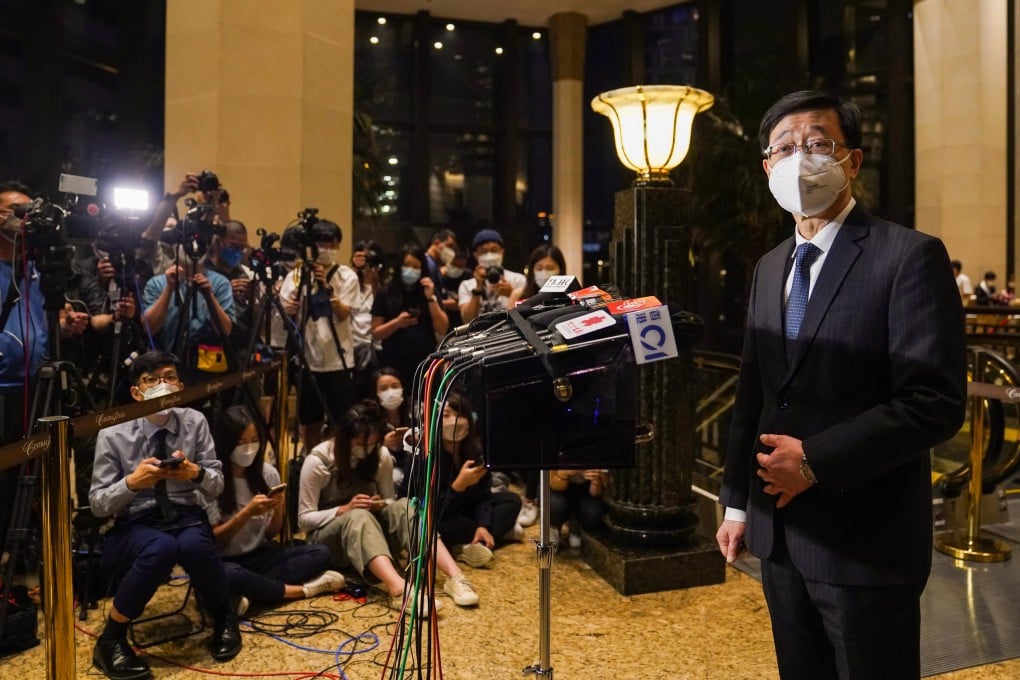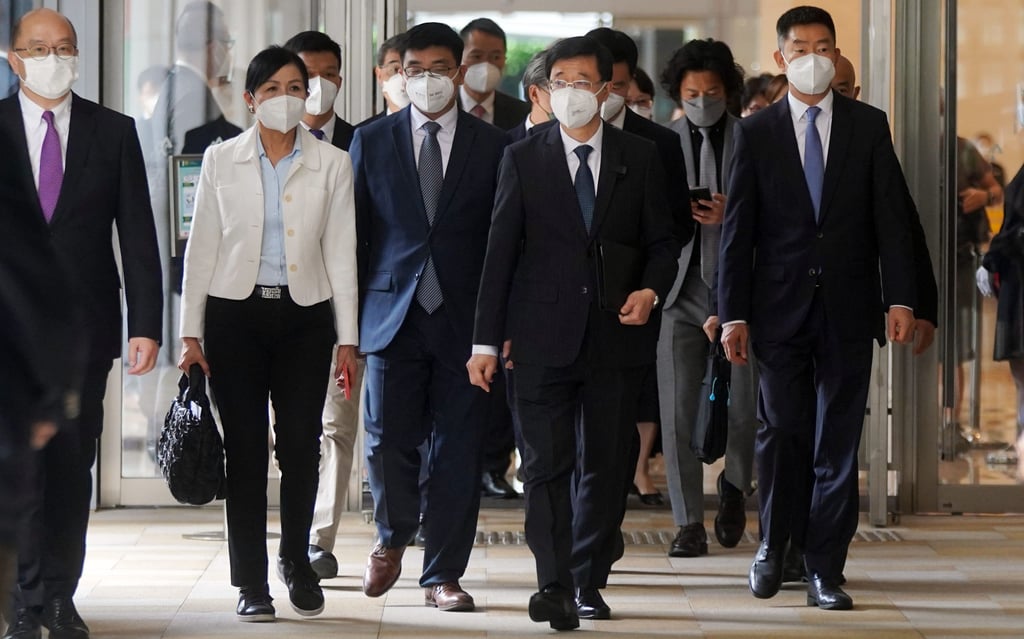Hong Kong chief executive election 2022: John Lee secures about 700 nominations, says Article 23 security legislation would be a top priority
- Lee stresses need for ‘stable and secure environment’ that would allow Hong Kong to weather any ‘attacks’
- Article 23 of the Basic Law requires Hong Kong to enact security legislation of its own, even after Beijing imposed a national security law on the city in 2020

Lee revealed on Tuesday he had received more than 700 nominations from the 1,454-member Election Committee, spanning its five sectors as required, after formally declaring his intention to run on Saturday.
As the sole election hopeful with Beijing’s blessing, the 64-year-old former policeman is all but guaranteed to be sworn in as chief executive on July 1.
“I will continue to appeal for people’s support, so I will be approaching the election committee members again for their support in the eventual voting exercise,” he said, adding he intended to submit the necessary forms to election authorities on Wednesday.
“I will also try to get as many opinions and ideas from them, so that I will be able to do my election platform as soon as possible.”

Congratulations poured in for Lee during two virtual meetings he held with committee members that were available to the public to watch, including Martin Lee Ka-shing, the co-chairman of Henderson Land Development, who expressed a willingness to “cooperate with the government in boosting housing supply”.